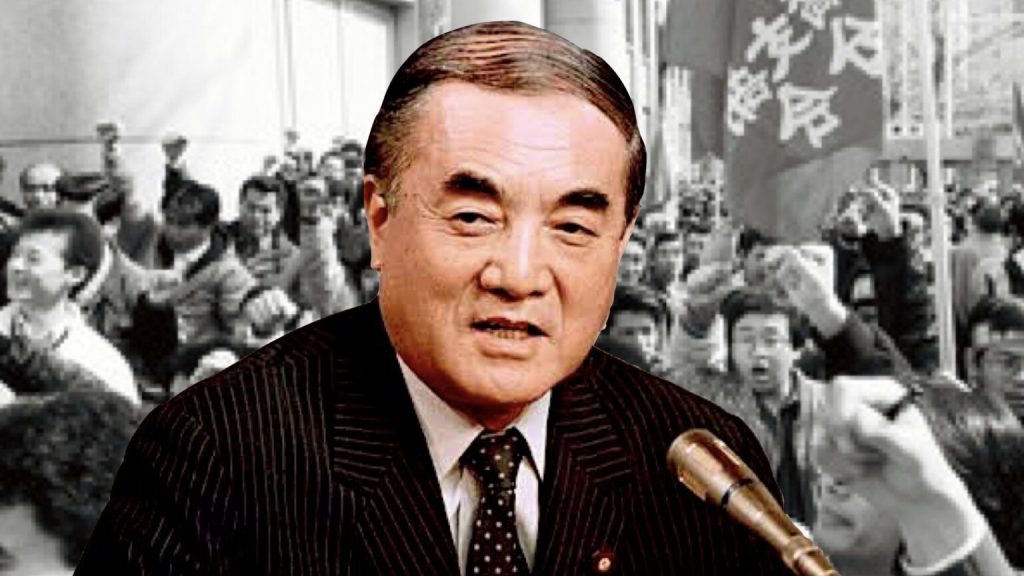Tozen, and our President Okunuki Hifumi, have been mentioned in the following article by Mieko Takenobu about the difficulties that Filipino domestic workers have.
竹信三恵子氏のフィリピン人家事労働者が抱える問題についての記事の中で、東ゼン労組と執行委員長の奥貫妃文についても触れていただきました。
Tozen, and our President Okunuki Hifumi, have been mentioned in the following article by Mieko Takenobu about the difficulties that Filipino domestic workers have.
竹信三恵子氏のフィリピン人家事労働者が抱える問題についての記事の中で、東ゼン労組と執行委員長の奥貫妃文についても触れていただきました。
中曽根康弘元首相が2019年11月29日、101歳で亡くなった。1971年生まれの筆者にとって、中曽根氏は良くも悪くも鮮明に記憶に残る総理大臣の一人である。日本の戦後の総理大臣は概して「調整役」的存在に徹し、カリスマ性が求められてこなかったなか、中曽根氏はもしかしたら、初めてカリスマを志向した総理大臣だったかもしれない。“ロン・ヤス関係”と呼ばれた、アメリカのレーガン元大統領との“日米蜜月関係”の構築は、日本の「対米従属化」をいっそう加速させたといえるかもしれない。だが、当時中学生~高校生の子どもだった筆者の目には、初めて日本の首相が、アメリカと“対等に”そして“フレンドリーに”交渉する姿を見た気がした。それは単純に、彼の身長が178センチとこれまでの総理大臣の中では群を抜いて高く、アメリカ大統領と並んだときに引けをとらなかったという視覚的な印象もあるだろう。

SNA (Tokyo) — Prime Minister Yasuhiro Nakasone died this past November 29. During his tenure as prime minister from 1982 to 1987, he had deepened Japan’s subordination to the US hegemon through his Ron-Yasu Bromance with President Ronald Reagan. But to one middle and high schooler in the 1980s, he seemed to be the first prime minister to hold his own in friendly talks with the United States, almost as an equal.
Welcoming in the Reiwa era and the new President of Shane, Ishitani Yuya, Shane Workers’ Union are pleased to sign a Labour Management Agreement in what is hoped to be a new phase of improved relations between the Union and the Company.
The agreement guarantees the working conditions of union members and agrees to use Company paperwork when converting to permanent employment.
The agreement also defines a set of rules for collective bargaining which lays the groundwork for improved negotiations and a more timely and forthcoming approach from management.
While some issues remain unresolved, notably the official labour dispute and charges of unfair labour practices against union members, this agreement is a very positive step forward and the Union believes it is only a matter of time before a suitable settlement is negotiated and normal labour-management relations restored.
全国一般東京ゼネラルユニオン(略称:東ゼン労組)
執行委員・主任オルグ ルイス・カーレット
1995年8月6日。アメリカによって日本に原爆が投下された日からちょうど50年。私はニューヨーク、マンハッタンのど真ん中で、反戦、反核を叫んでいた。私はその日のデモのために、渾身の力を注いでいた。アメリカでは、かつて日本に原爆を投下した事実についての認識が薄いこともあって、私は自らの使命の如くデモの成功に向け奔走した。マンハッタンの中央通りで大勢の仲間とデモ行進をしたことは、今でも昨日のことのように脳裏に刻み込まれている。
I research labor law and teach it to university students. In the first class, I break up the two groups of labor laws — those related to individual and collective labor relations — for my students. Individual labor relations law begins and ends with the 1947 Labor Standards Act (rōdō kijun hō); its collective counterpart is surely the 1950 Trade Union Act (rōdō kumiai hō).
About 99.9 percent of my 18-20-year-olds look blank the first time they hear the word “rōdō kumiai,” or labor union. Some of them have arubaito (part-time jobs) and thus already have become rōdōsha (workers) protected by labor laws, but they have not heard of labor unions and have no idea what such a creature looks like. I have my work cut out trying to explain to them the concepts of labor unions, collective bargaining and striking.
GU court victory against gov’t over insurance to have major impact
On 20 March at 13:25, the Tokyo District Court ruled on the case of a General Union member who sued the Japanese government in an important test case regarding eligibility for enrollment in the Employees Health and Pension Insurance (shakai hoken).
Read more at the GU website here.
I was hoping to start off the Year of the Sheep in a subdued, “sheepish” fashion, but bad news just keeps on coming. The ruling coalition is working hard to push through a bill to abolish overtime pay for high-income workers and another to deregulate temp-agency employment (haken). These bills will hurt the conditions of all workers in Japan, including foreigners.
Speaking of foreign workers, I’d like to focus this month on how labor laws in Japan handle the issue of nationality. But first, a detour:
Japanese society over the past couple of years has taken a dangerous turn toward extreme nationalism. My husband noted, “Since 2014, both NHK and the private broadcasters have changed how they refer to Japan, from using the word Nihon to Nippon.” The latter was used during World War II and is associated with jingoistic militarism. It also has a harsher consonant sound than “Nihon.”